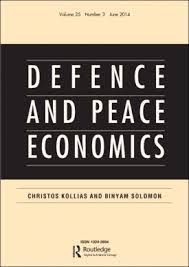
Exposure to Conflict, Migrations and Long-run Education and Income Inequality: Evidence from Bosnia and Herzegovina
We investigate the long-term relationship between conflict-related migration and individual socioeconomic inequality. Looking at the post-conflict environment of Bosnia and Herzegovina (BiH), a former Yugoslav state most heavily impacted by the wars of the early 1990s, the paper focuses on differences in educational performance and income between four groups: migrants, internally displaced persons, former external migrants, and those who did not move. The analysis leverages a municipality-representative survey (n ≈ 6,000) that captured self-reported education and income outcomes as well as migration histories. We find that individuals with greater exposure to conflict had systematically worse educational performance and lower earnings two decades after the war. Former external migrants now living in BiH have better educational and economic outcomes than those who did not migrate, but these advantages are smaller for external migrants who were forced to move. We recommend that policies intended to address migration-related discrepancies should be targeted on the basis of individual and family experiences caused by conflict.





